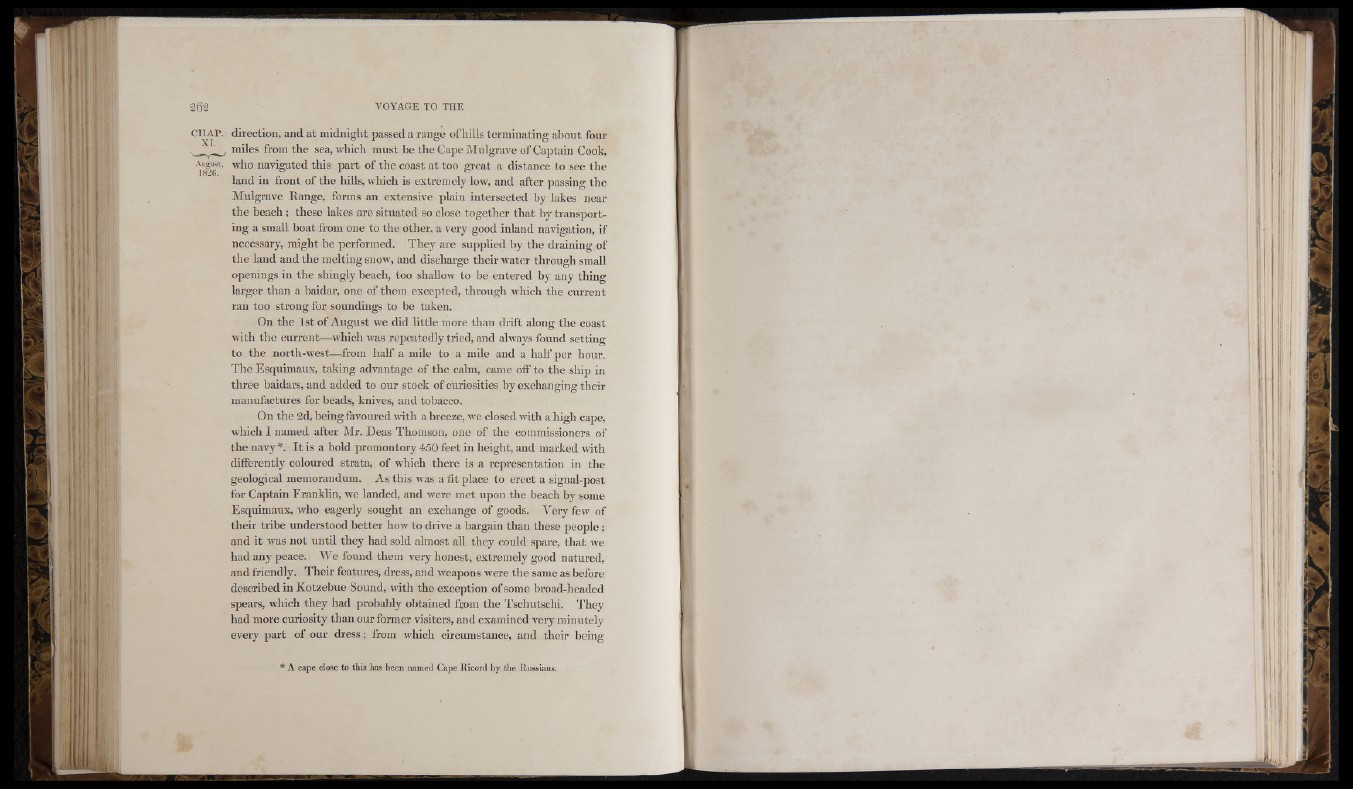
A m ;
262 VOYAGE TO THE
direction, and at midnight passed a range of hills terminating about four
miles from the sea, which must be the Cape Mulgrave of Captain Cook,
who navigated this part of the coast at too great a distance to see the
land in front of the hills, which is extremely low, and after passing the
Mulgrave Range, forms an extensive plain intersected by lakes near
the beach ; these lakes are situated so close together that by transporting
a small boat from one to the other, a very good inland navigation, if
necessary, might be performed. They are supplied by the draining of
the land and the melting snow, and discharge their w'ater through small
openings in the shingly beach, too shallow to be entered by any thing
larger than a baidar, one of them excepted, through which the current
ran too strong for soundings to be taken.
On the 1st of August we did little more than drift along the coast
with the current—which was repeatedly tried, and always found setting
to the north-west—from half a mile to a mile and a half per hour.
The Esquimaux, taking advantage of the calm, came off to the ship in
three baidars, and added to our stock of curiosities by exchanging their
manufactures for beads, knives, and tobacco.
On the 2d, being favoured with a breeze, we closed with a high cape,
which I named after Mr. Deas Thomson, one of the commissioners of
the navy*. It is a bold promontory 450 feet in height, and marked with
differently coloured strata, of which there is a representation in the
geological memorandum. As this was a fit place to erect a signal-post
for Captain Franklin, we landed, and were met upon the beach by some
Esquimaux, who eagerly sought an exchange of goods. Very few of
their tribe understood better how to drive a bargain than these people;
and it was not until they had sold almost all they could spare, that we
had any peace. We found them very honest, extremely good natured,
and friendly. Their features, dress, and weapons were the same as before
described in Kotzebue Sound, with the exception of some broad-headed
spears, which they had probably obtained from the Tschutschi. They
had more curiosity than our former visiters, and examined very minutely
every part of our dress; from which circumstance, and their being
* A cape close to this has been named Cape Ricord by th e Russians.
HI''